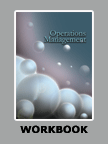Volvo's Product Development Practices: Focus on Safety
|
|
ICMR HOME | Case Studies Collection
Case Details:
Case Code : OPER042
Case Length : 18 Pages
Period : 1991 - 2004
Organization : Volvo Car Corporation
Pub Date : 2004
Teaching Note :Not Available
Countries : Sweden
Industry : Automobile
To download Volvo's Product Development Practices: Focus on Safety case study
(Case Code: OPER042) click on the button below, and select the case from the list of available cases:

Price:
For delivery in electronic format: Rs. 500;
For delivery through courier (within India): Rs. 500 +Shipping & Handling Charges extra
» Operations Case Studies
» Case Studies Collection
» ICMR HOME
» View Detailed Pricing Info
» How To Order This Case
» Business Case Studies
» Case Studies by Area
» Case Studies by Industry
» Case Studies by Company 
Please note:
This case study was compiled from published sources, and is intended to be used as a basis for class discussion. It is not intended to illustrate either effective or ineffective handling of a management situation. Nor is it a primary information source.
Chat with us

Please leave your feedback

|
|




<< Previous
"When we asked people around the world what Volvo stood
for, they would say: 'Safety.' That was good. For years, the industry said
safety did not sell. I was convinced it would. It was always extremely
gratifying when customers wrote to tell us about how they had survived accidents
in a Volvo."1
- Pehr Gyllenhammar, Former CEO, Volvo.
"Cars are driven by people. The guiding principle behind
everything we make at Volvo, therefore, is and must remain, safety."2
- Assar Gabrielsson and Gustaf Larson, Founders of Volvo.
Introduction
|
In January 2004, at the North American International Auto Show held in Detroit,
the Swedish car manufacturer - Volvo Car Corporation (VCC)3
- unveiled two new safety systems for its automobiles - Adaptive Cruise Control
and Warning System with Break Support. Industry analysts pointed out that these
state-of-the-art safety technologies reaffirmed Volvo's top position in the
field of automobile safety and contributed towards better accident prevention in
Volvo cars. Commenting on the systems, Lex Kerssemakers, Vice-president, Global
Marketing, and Head, Product Planning, at Volvo Cars said, "We see these
advanced systems as vital in our ongoing strategy of remaining world leaders in
the field of safety."4
|

|
Since it began making cars in 1924, Volvo has always been at the forefront in
conducting R & D for safety technologies, which were way ahead of the times.
|
|
By doing so, the company enhanced its brand image to such an extent that the
name, 'Volvo' became a synonym for safety. The company was credited with
introducing several path breaking safety technologies during its
eight-decade history. For instance, the three-point seat belt, which Volvo
introduced in 1958, was later made mandatory for automobiles across the
world.
Volvo also introduced the side impact protection system in 1992, five
years before they were made compulsory in the US (Refer Exhibit I for Volvo
Safety Firsts). Analysts felt that Volvo's constant emphasis on safety
research played a major role in developing advanced safety technologies. |
Volvo's Product Development Practices: Focus on Safety
- Next Page>>
|
|










